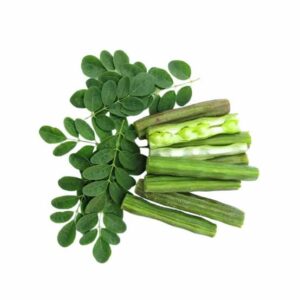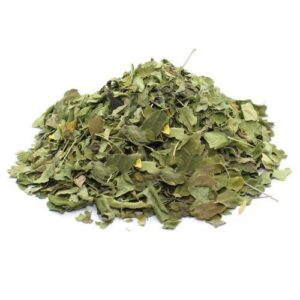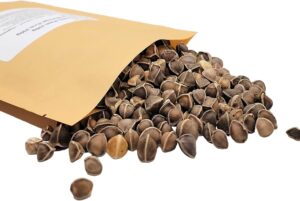16 BENEFITS OF MORINGA TO HUMAN HEALTH
The drumstick tree, also known as the miracle tree, the ben oil tree, or the horseradish tree, is Moringa oleifera. Because of its therapeutic characteristics and health advantages, moringa has been used for generations. Antifungal, antiviral, antidepressant, and anti-inflammatory activities are also present.
Moringa is said to provide a wide range of health and cosmetic advantages, as well as the ability to help prevent and treat ailments. Moringa’s advantages include:
1. Skin and Hair Protection and Nourishment
Moringa seed oil protects hair from free radicals while also keeping it clean and healthy. Moringa also includes protein, which helps to protect skin cells from oxidative stress. It also has moisturizing and detoxifying properties that benefit the skin and hair. It is effective in treating skin infections and sores.
2. Edema Treatment
Edema is a painful disorder in which fluid accumulates in certain bodily parts. Moringa’s anti-inflammatory qualities might help to prevent edema from forming.
3. It Keeps the Liver Healthy
Moringa appears to protect the liver from anti-tubercular medication damage and can speed up the healing process.
4. Cancer Prevention and Treatment
Moringa extracts have characteristics that may aid in the prevention of cancer. It also contains niazimicin, a chemical that inhibits the growth of cancerous cells.
5. Dealing with Gastrointestinal Issues
Some stomach diseases, including constipation, gastritis, and ulcerative colitis, may benefit from moringa extracts. Moringa’s antibiotic and antibacterial characteristics may aid in the prevention of pathogen development, and its high vitamin B concentration aids digestion.
6. It Defends Against Bacterial Infections
Moringa extracts may treat infections caused by Salmonella, Rhizopus, and E. coli because of their antibacterial, antifungal, and antimicrobial capabilities.
7. Improves Bone Health
Moringa also includes calcium and phosphorus, both of which are beneficial to bone health. Moringa extract, besides its anti-inflammatory effects, may aid in the treatment of illnesses such as arthritis and the healing of broken bones.
8. Good For Treating Mood Disorders
Moringa has been shown to aid with sadness, anxiety, and exhaustion.
9. Protects The Cardiovascular System
Moringa extract contains potent antioxidants that have been proved to help prevent cardiac damage and maintain a healthy heart.
10. Assists in the Healing of Wounds
Moringa extract has been demonstrated to aid in the healing of wounds and the reduction of scarring.
11. Can Help in Treating Diabetes
Moringa helps to lower blood glucose levels and sugar and protein levels in the urine. The hemoglobin levels and total protein content of individuals who were examined improved because of this.
12. Asthma Treatment
Moringa has been shown to help lower the intensity of asthma episodes and protect against bronchial constriction. It’s also been proven to help with lung function and breathing in general.
13. Can Defend Against Kidney Problems
If people consume moringa extract, they may be less prone to develop stones in their kidneys, bladder, or uterus. Moringa is abundant in antioxidants, which may help reduce toxicity in the kidneys.
14. Can Reduce High Blood Pressure
Moringa includes the chemicals isothiocyanate and niaziminin, which aid to prevent artery thickening (which is responsible for increased blood pressure). Thus, moringa can help reduce high blood pressure
15. Can Improve Eye Health
Because of its strong antioxidant content, moringa can improve vision. Moringa has been shown to reduce retinal artery dilation, decrease capillary membrane thickening, and inhibit retinal malfunction.
16. Can Help With Treating Anemia and Sickle Cell Disease
Moringa may aid in the absorption of iron, increasing red blood cell count. The plant extract is regarded to be beneficial in the treatment and prevention of anemia and sickle cell disease.

Dried Moringa Leaves from Renamy Global Resources Ltd
How to Import Moringa from Nigeria: A Step-by-Step Guide
Moringa is a versatile plant known for its nutritional benefits, and Nigeria is one of the largest exporters of moringa leaves, powder, and other moringa-based products. If you’re interested in importing moringa from Nigeria, follow this guide to ensure a smooth and successful transaction.
1. Research the Market and Products
- Types of Moringa: Moringa is available in various forms, such as dried leaves, powder, capsules, seeds, oil, and more. Identify which specific product(s) you want to import.
- Suppliers: Research reputable moringa producers and suppliers in Nigeria. Look for companies with good reviews, certifications, and a track record of reliability.
- Quality Standards: Ensure the supplier meets international quality standards for export. This includes certifications such as ISO, Organic Certification, or any other industry standards applicable to your country.
2. Check Import Regulations in Your Country
- Import Duties and Taxes: Research the customs duties, taxes, and tariffs applicable to importing moringa products from Nigeria to your country.
- Customs Clearance: Understand the documentation and procedures required for clearing the shipment at your country’s customs. Common documents may include a commercial invoice, packing list, certificate of origin, phytosanitary certificate (for plant products), and bill of lading.
- Import Restrictions: Check if there are any restrictions on importing plant-based products into your country. Some countries have strict regulations on herbal products.
3. Find a Reliable Supplier
- Look for Certified Exporters: Choose suppliers who are officially registered with Nigerian export agencies. This ensures they follow export guidelines and regulations.
- Verify Quality: Request samples to assess the quality of the moringa. This helps to verify that the products meet your standards.
- Negotiate Terms: Discuss pricing, payment terms, and delivery options with the supplier. It’s crucial to clarify terms like payment methods (e.g., L/C, T/T), delivery times, and shipping costs.
- Supply Chain Security: Make sure that the supplier can provide consistent and reliable delivery, especially if you’re planning to import regularly.
4. Choose a Shipping Method
- Air Freight vs Sea Freight: Air freight is faster but more expensive, while sea freight is cheaper but takes longer. Choose based on your budget and time requirements.
- Freight Forwarder: Hire a freight forwarder to handle the logistics. A freight forwarder will assist with the best route, manage the shipment, and ensure that everything is transported efficiently.
- Shipping Insurance: It’s advisable to purchase insurance for your shipment in case of damage or loss during transit.
5. Arrange for Payment
- Secure Payment Methods: Use secure payment methods, such as letter of credit (L/C), bank transfer, or PayPal, to minimize the risk of fraud.
- Down Payment: Be prepared to pay a portion of the total price upfront (usually 30-50%) to secure the order, with the balance due upon shipment or delivery.
6. Prepare Import Documentation
- Commercial Invoice: This document lists the products, prices, quantity, and buyer and seller information.
- Packing List: Provides a detailed list of the items in the shipment, including weight, dimensions, and packaging.
- Certificate of Origin: This certificate verifies that the moringa products originate from Nigeria and are eligible for preferential tariffs under certain trade agreements.
- Phytosanitary Certificate: If required, this certificate proves that the plant products meet the health and safety standards of the importing country.
- Bill of Lading: A receipt issued by the shipping company for the cargo, detailing shipping instructions and ownership.
7. Customs Clearance
- Customs Broker: Hiring a customs broker can simplify the customs clearance process. They will ensure all paperwork is in order and help you pay necessary duties and taxes.
- Inspection: Some countries may require that your shipment undergo an inspection at the port of entry. The inspection will ensure that the moringa complies with local regulations, especially regarding plant health.
8. Receiving the Shipment
- Delivery to Your Location: Once cleared by customs, arrange for the final delivery of the goods to your warehouse or business location.
- Inspection on Arrival: Inspect the shipment for any damages or discrepancies from the order. If any issues arise, notify the supplier and insurance company promptly.
9. Distribute or Resell Moringa Products
- Once you’ve received your shipment, you can start distributing or reselling the moringa products in your local market. If you’re selling directly to consumers, ensure you have appropriate marketing and packaging.
Importing Moringa from Nigeria In Summary:
- Establish Relationships: Build strong relationships with suppliers and freight forwarders to make future shipments smoother.
- Bulk Orders: Consider ordering in bulk for better rates if you plan to resell or use moringa in large quantities.
- Stay Updated: Keep track of any changes in trade regulations or tariff policies between Nigeria and your country.
Source Your Moringa With Renamy Global Resources Ltd
We are a trusted global order fulfillment and sourcing solution company with deep expertise in the agric industry. Our end-to-end supply chain solution makes the export of quality agric products easy, quick, and safe. Whichever region of the world you are in, be it Europe, Asia, USA, Canada, Other North/Central American countries, Africa, South America, or Oceania, you can reliably order your agric products and we will ensure it is successfully delivered to you.

